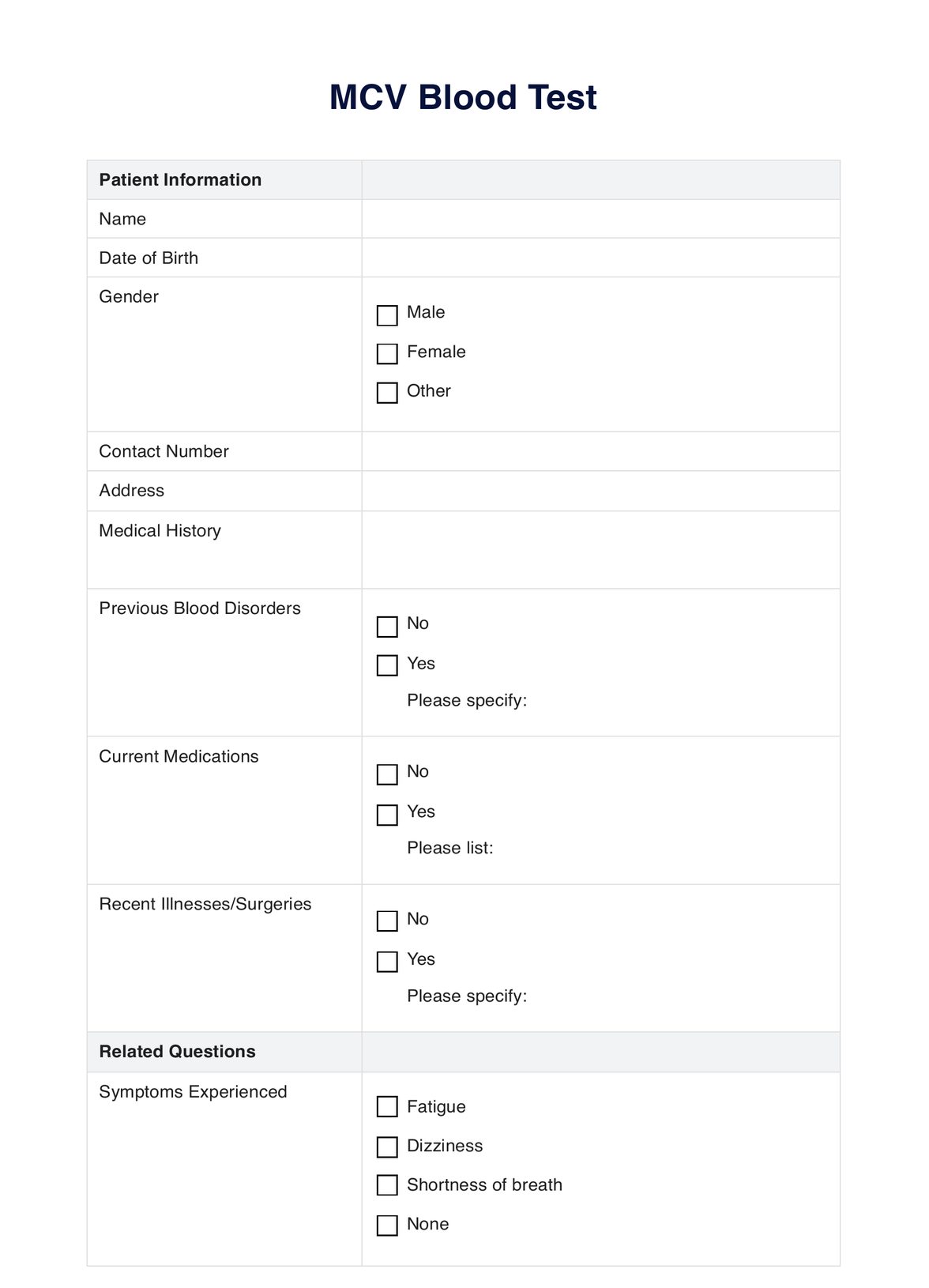Carepatron optimizes the MCV blood test process by streamlining data management, ensuring accurate tracking of longitudinal patient data, and facilitating straightforward interpretation and communication of results.

MCV Blood
Explore Carepatron's seamless approach to managing MCV blood tests. Enhance patient care with efficient, secure, and integrated solutions. Sign up now!
Use Template
MCV Blood Template
Commonly asked questions
Absolutely, Carepatron is designed for seamless integration with various electronic health systems, enhancing data accessibility and security across platforms.
Yes, Carepatron prioritizes data security and privacy, employing advanced measures to safeguard sensitive patient information.
EHR and practice management software
Get started for free
*No credit card required
Free
$0/usd
Unlimited clients
Telehealth
1GB of storage
Client portal text
Automated billing and online payments











